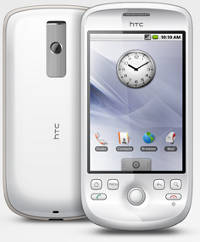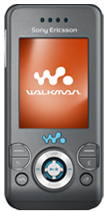We rarely discuss what the future of Rockbox looks like, as it rarely actually matters. We work on whatever we think is fun and all things are fine.
Now, I’d like to do something different and actually lift my nose and stare towards the horizon. What’s in the future for Rockbox?
Dedicated mp3 players vanish
I claim that the current world of portable mp3 and music players is dying. Within just a few years, there will only be a few low-end players left being manufactured and most portable music will be done on much more capable (CPU and OS wise) devices such as the current smartphones, be it Android, Maemo or iPhone based ones.
While maintaining Rockbox to work and prosper on the existing targets is not a bad thing, the end of the line as a stand-alone firmware is in sight. I say the only viable future for Rockbox when the players go very advanced, is not to make Rockbox handle networking etc, it is to make sure that it can run and function as an app on these new devices and to take advantage of their existing network stacks etc.

An app for that?
Rockbox as an app has been a story we’ve told the kids around the campfires for a good while by now and yet we haven’t actually seen it take off in any significant way. I’m now building up my own interest in working on making this happen. In a chat after my Rockbox talk at Fosdem 2010, two other core Rockbox developers (Zagor and gevaerts) seemed to agree to the general view that a Rockbox future involves it running as an app.
Out of the existing systems mentioned above, I’d prefer to start this work focused on Android. It has the widest company backing combined with open source and it’s also the most used open phone OS. I don’t think there’s anything that will prevent us from working on all those platforms as the back-bone should be able to remain the same and portable code we already have and use. Heck, it could then also become more of a regular app for common desktops too.
Challenges
Changing Rockbox to become an application instead of a full operating system and application suite involves a lot of changes. Some of the things we need to solve include:
- We need to make sure we can use the OS’ native threading without any particular performance loss. The simulator shows that there are might be problems with this right in the current code as it runs dog slow on a Nokia n900.
- The full suite of plugins and games and so on doesn’t really fit that well when Rockbox is just an app in itself.
- Different screen sizes. Lots of stuff in Rockbox assume a compile-time fixed screen size, while a good phone app would have to be able to work with whatever size the particular happens to feature. I don’t think we need to care about live resizing (yet).
Update, July 2010: The app part II.




 Yes, in case you missed it – the
Yes, in case you missed it – the